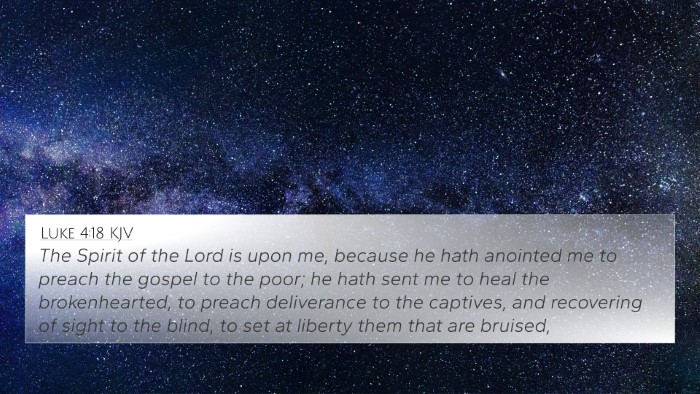Meaning and Interpretation of Deuteronomy 15:1
Deuteronomy 15:1 states: "At the end of every seven years you shall grant a release of debts." This verse introduces a significant principle in the Old Testament regarding the treatment of debts and economic justice.
Contextual Understanding
This verse is situated within the broader framework of the laws given to the Israelites. The Sabbatical Year, which occurred every seven years, is a time of rest and release, reflecting God's provision and mercy. It teaches the Israelites to remember their dependence on God and to extend that mercy to one another.
Insights from Commentary
-
Matthew Henry:
Henry emphasizes the importance of forgiveness that this verse embodies. The release of debts reflects God’s merciful character, urging His people to emulate this attribute. It fosters community relationships built on generosity and grace rather than transactional bonds.
-
Albert Barnes:
Barnes highlights the practical aspect of the debt release. It is designed to prevent perpetual poverty among the Israelites. This social welfare provision is aimed to ensure that no one is enslaved by their debts indefinitely, thus maintaining a healthy community structure.
-
Adam Clarke:
Clarke points out the rhythm of grace and reliance on God ingrained in this command. Each release serves as a reminder of the faithfulness of God who provides for His people, thus reinforcing the concept of stewardship over wealth rather than ownership.
Biblical Cross-References
Deuteronomy 15:1 connects with several other Scripture passages that reinforce the themes of mercy, debt forgiveness, and justice:
- Exodus 23:10-11: Discusses the Sabbath year when land was to rest and produce was to be shared.
- Leviticus 25:1-7: Expounds on the jubilee year, a time when debts are forgiven, and land is returned.
- Matthew 6:12: In the Lord's Prayer, believers are instructed to forgive debts, echoing the principle of mercy.
- Luke 4:18-19: Jesus proclaims the year of the Lord's favor, fulfilling the spirit of Jubilee.
- Romans 13:8: Advises not to owe anyone anything but love, linking to the idea of forgiveness.
- James 2:14-17: Reminds believers of the necessity of deeds accompanying faith, including acts of mercy.
- Colossians 3:13: Encourages forgiving others as God forgave us, reflecting the spirit of Deuteronomy 15:1.
Thematic Connections
The themes found in Deuteronomy 15:1 resonate throughout the Bible, establishing a continuous dialogue on mercy, social justice, and economic stewardship.
- Mercy: The act of forgiving debts mirrors the extensions of grace found in various scriptures, emphasizing God’s nature.
- Justice: The system of debt release promotes socio-economic equality, a recurring theme in the prophetic literature.
- Community Responsibility: The societal implications of financial forgiveness encourage mutual support within the faith community.
Conclusion
In conclusion, Deuteronomy 15:1 presents a powerful message about the nature of God's provision and the communal responsibility of mercy. The cross-references deepen our understanding and connect various Biblical texts, illustrating the rich inter-Biblical dialogue surrounding forgiveness and grace.
For those studying these scriptures, utilizing tools for Bible cross-referencing and a Bible concordance can enhance the depth of understanding related to this verse. Whether one is engaging in cross-reference Bible study or sermon preparation, the themes within Deuteronomy help illustrate a compassionate God who desires justice and equity.









